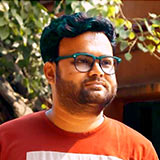Guru Kalamandalam V. R. Venkit: The Kerala maestro who became Kolkata’s own - GetBengal Story
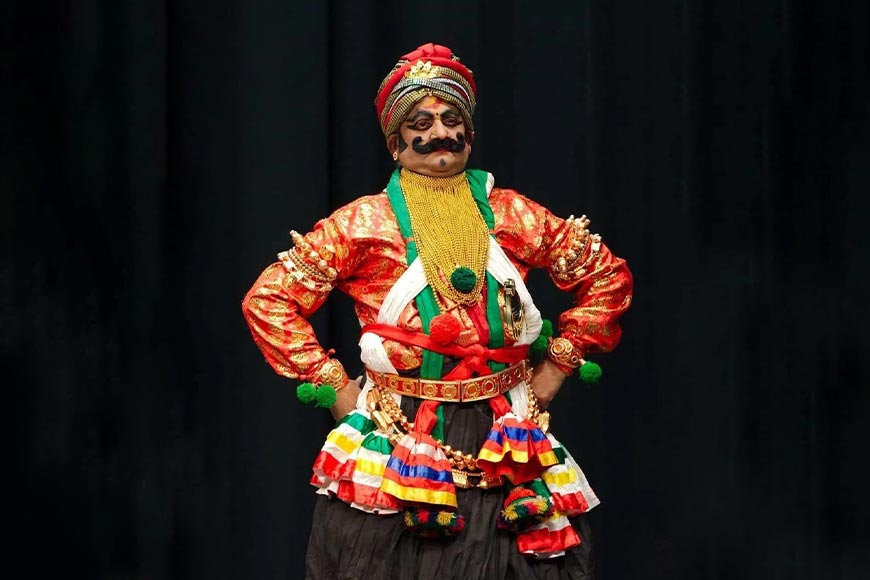
During the 1960s, his father, Ram Iyer was operating a ration store in Kerala. The family was from Tamil Nadu but had lived in Kerala for four generations. Although Ram Iyer operated a ration shop, his communist beliefs resulted in the family having a very austere lifestyle. The couple had children, in addition to the many relatives they housed, which meant they were feeding approximately seventeen mouths. Ram Iyer’s wife, Lakshmi Ammal, contributed to hold the family together by working hard alongside her husband.
Of the five children, the oldest one, a timid boy named Venkataraman, was the most of a dreamer. With his long eyes, slight build, and darting movements, he almost resembled little Krishna. Everybody called him “Venkit” with a smile. He was immersed in every household duty, but in most occasions it seemed like he was out of body and mind. One day his mother asked him what he was so deep in thought about. Venkit answered the question with clarity, saying he wanted to do something creative as well — a thing that couldn't be done by staying at home — in the way that his elder sister Padmini wanted to. He wanted to go to Kerala Kalamandalam, just like her.
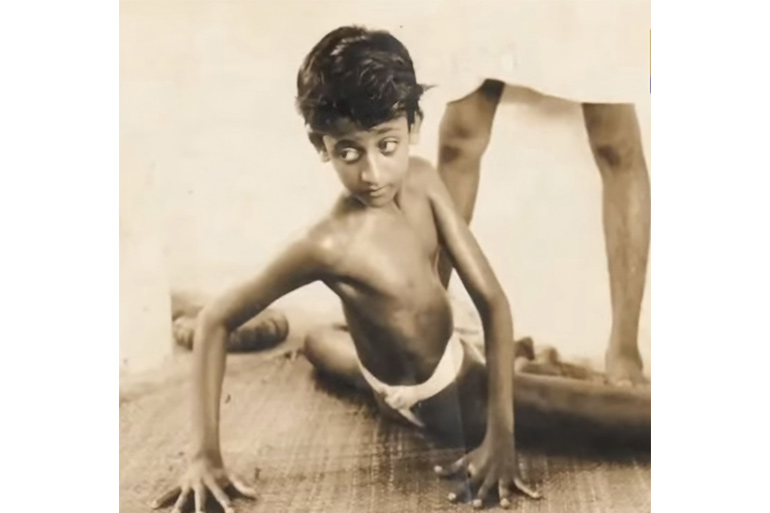
Hearing this, his parents did not object. They reached out to Padmini, and soon, like his sister, Venkit too joined Kerala Kalamandalam. Padmini was already one of the brightest students in Mohiniyattam there. Venkit, on the other hand, was admitted to the music department, as he possessed a melodious voice. But his teachers, sensing his creative flair, suggested he shift to dance. Thus, Venkataraman enrolled in the Kathakali department.
Founded by the great Malayalam poet Vallathol Narayana Menon, Kerala Kalamandalam’s training system is famous worldwide. When Venkataraman joined, it was a diploma course, but students had to stay and train for six years — whether in music or dance. The training was more rigorous than most university degrees. The day began at 4 a.m. and was filled with lessons and rehearsals. Food was meagre — mainly rice gruel, which Malayalis call “kanji,” often with rice worms floating in it. In those tough years, the young Venkit, so beloved by his parents and siblings, fell ill with jaundice.
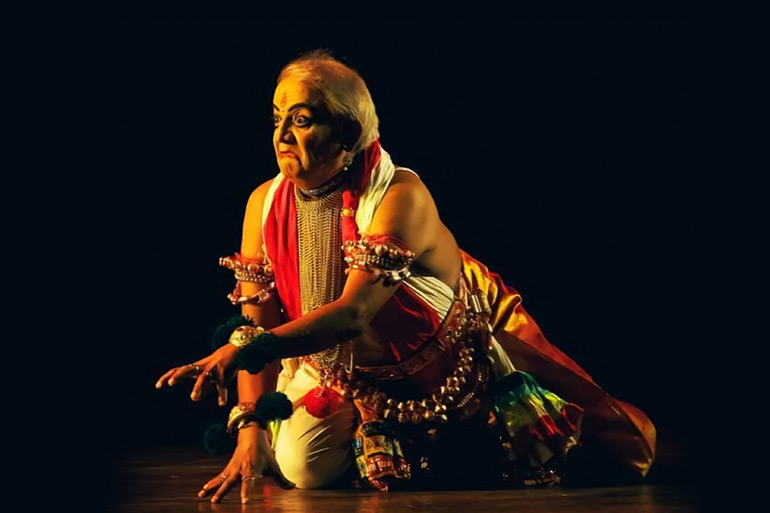
At this point in her story, Aunty — Preetha Venkit, the guru’s wife — fell silent for a moment. She still didn’t quite know what caused Guru Kalamandalam V. R. Venkit’s cirrhosis of the liver. On 30 June 2025, Guru Kalamandalam V. R. Venkit passed away — a great loss to Kolkata’s dance world, almost like the falling of a star. Social media flooded with tributes and memories. His daughter Sangeeta and son Abhiram flew in from Australia. His birthday was on 7 July, and on 12 July, Kolkata was to host a grand event celebrating his 50 years in dance — preparations for which had been in full swing under the Guru’s supervision until his last days. But he did not live to see it. His students from all over came to the State Music Academy to pay their final respects. Among the few artists who made Kathakali synonymous with Kolkata, Guru Kalamandalam V. R. Venkit was one of the most significant. His passing, without a doubt, marked an irreplaceable loss.
Preetha Aunty continued to share her memories.
Venkataraman Venkit had come to Kolkata in 1974–75, in search of work. One of his brothers lived near Central Avenue. But what work could he possibly do, except dance? The Kerala Kalamandalam graduate was quickly recruited by Guru Govindan Kutty and Guru Thangamani Kutty of the Calcutta Kathakali Centre to begin teaching Kathakali. Thangamani Kutty was soon to see that Venkit required studying Bharatanatyam in order to teach more students. He began his Bharatanatyam classes with her.
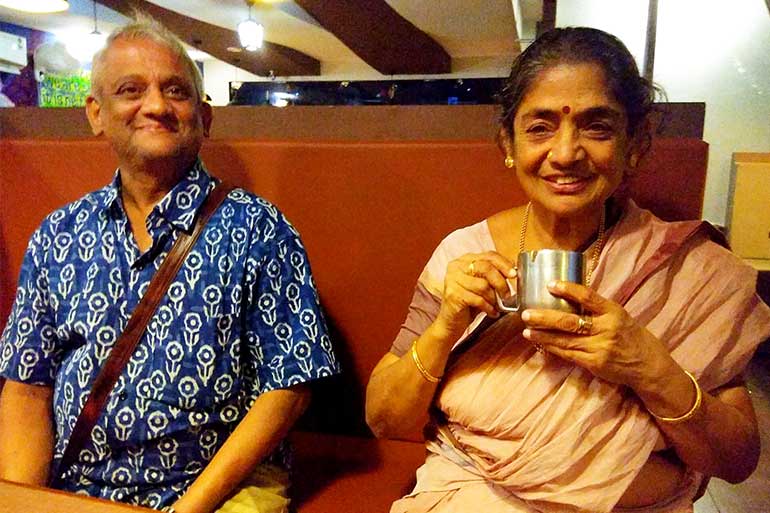
Along with him were three others—Abhay Pal, Anita Mallik, and Uma, a relation of the Kutty family. The four became inseparable as a team, where they would perform together at every school function and received recognition for their performed accomplishments. The two, Venkataraman and Uma, soon came to be known throughout India. Their partnership extended beyond the stage — they married, under the guidance of Guru Govindan Kutty and Guru Thangamani Kutty.
Their life was full of dance and joy — until fate struck. Uma Venkit died in a road accident at just 27. Their daughter, Sangeeta, was barely five years old then. It was during this time that Preetha entered his life.
“In those days,” Aunty said, “there was nearly an eighteen-year age gap between us. I used to call him ‘Uncle.’ Naturally, my family was opposed to the idea. But my parents were great admirers of your Guruji’s dance. My father believed he would take care of me like a daughter — and he truly did. After our marriage, we went through several ups and downs. I was teaching at Thangamani Kutty’s school then, as was your Guruji. But for some reason, we both had to leave that institution. It was a turbulent phase. Around that time, however, Guruji received a permanent position at Rabindra Bharati University. Slowly, we managed to buy this flat in Bikramgarh. Students started coming from everywhere. Gradually, we rebuilt our lives.
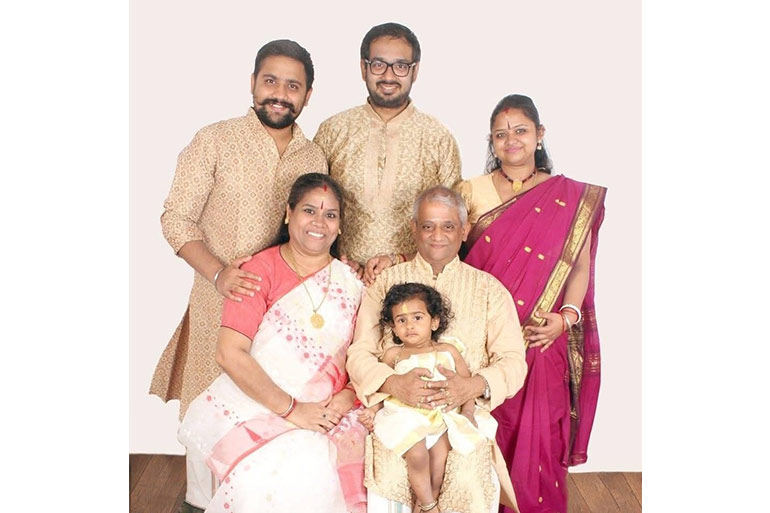
Guruji never let any hardship touch me. I taught Bharatanatyam in the Kalakshetra style. Together, we established Uma Kalalayam — I wanted it named after Uma Didi. Honestly, your Guruji was not just a teacher or professor — deep inside, he was a true performer. But after Uma Didi’s death, he gave up that part of himself. When they performed together on stage, it was like watching Radha and Krishna themselves.”
Nonetheless, Kolkata appreciated and celebrated the solo performances of Guru Kalamandalam V. R. Venkit. His instructors at Kerala Kalamandalam—Guru Kalamandalam Vijayan Asan, Guru Kalamandalam Padmanabhan Nair Asan, and Guru Kalamandalam Raman Kutty Nair Asan—played a significant role in his development as an artist. Among all such performers across the world, Guru Venkit stood out as one of the finest. His Putana Moksham dance-drama is considered a masterpiece of the highest order. He was even invited to perform it during Kerala Kalamandalam’s Diamond Jubilee celebrations, and he presented it across the world — in Turkey, Japan, and the United States.
He later became the Head of the Dance Department at Rabindra Bharati University and taught countless students. Not only dancers but also many theatre artists from Kolkata came to him to learn Natyashastra. He choreographed several notable dance-dramas, including Bhasmasura Mohini, Gitopadesham, and Karna-Kunti Samvad in the Kathakali idiom.
But just a year after retirement, he was diagnosed with cirrhosis of the liver — and a few years later, he was gone.
Kerala Kalamandalam's founder, the poet Vallathol Narayana Menon, was born on 16 October which is recognised worldwide as Kathakali Day. Wherever they are in the world, Kathakali artists, scholars and teachers and students in other fields observe this day with homage. But if we had to name one person who made Kathakali famous in Kolkata, it would have to be Guru Kalamandalam V. R. Venkit.
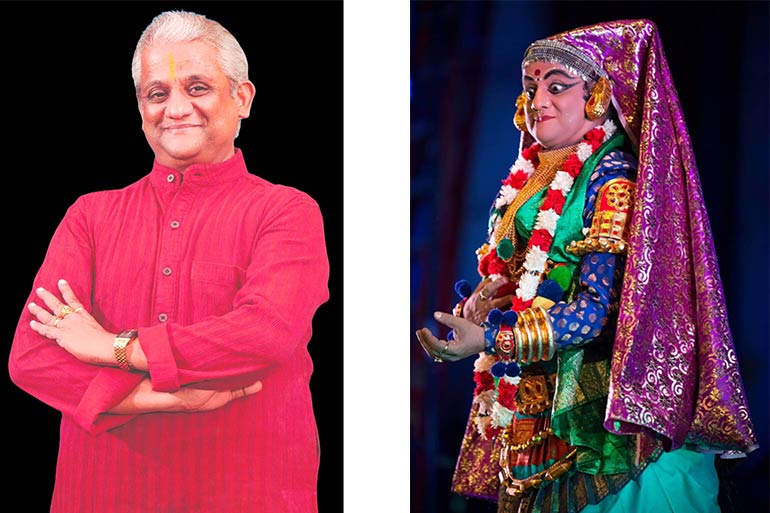
On 30 June, when his body lay at the State Sangeet Akademi, his students repeated this truth over and over. Preetha Aunty added, “He knew his health was failing. Toward the end, he met all his old friends. When Thangamani Kutty heard about his condition, she too called him to meet her. After years of closed off grief lets open up in their presence First there, despite language barriers, your Guruji was nervous to teach in Bengali, not being able to articulate as clearly as he would be able to in English. Yet, the students were predominantly Bengali, and in his golden years, he earned a level of love and respect from Bengal that perhaps could not come from any other state or community. We are overwhelmed. Living here all these years, we have become Bengalis ourselves. Still, his passing is an irreparable loss. But I believe his students will carry Kathakali forward.”
The young boy from Kerala who came to Kolkata fifty years ago in search of work and became one with Bengal and Bengalis will never be forgotten. His sacred memory is, in truth, a daily celebration of Kathakali Day for Bengal.
Note:
Translated by Krishnendu Mitra
To read the original Bengali article, click here.






